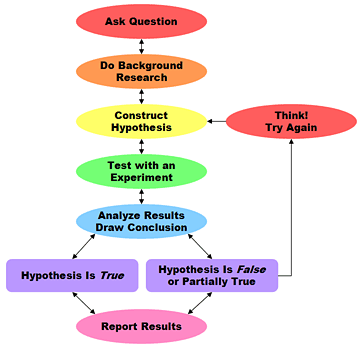It has been stated in another thread that science requires faith. So, what is science? The word science comes from the Latin word "scientia", meaning knowledge. Keeping that in mind, what is a definition of science? Webster's dictionary defines science as[SIZE=-1]:
"knowledge attained through study or practice," or "knowledge covering general truths of the operation of general laws, esp. as obtained and tested through scientific method [and] concerned with the physical world."
Recently, Brittan's Science Council officially defined science as:
[/SIZE]"Science is the pursuit of knowledge and understanding of the natural and social world following a systematic methodology based on evidence."
In performing scientific research the "scientific method" is utilized in an orderly procedure which is described as follows:

The question I have is, "where in the scientific method is faith required"?
[SIZE=-1]
[/SIZE]
"knowledge attained through study or practice," or "knowledge covering general truths of the operation of general laws, esp. as obtained and tested through scientific method [and] concerned with the physical world."
Recently, Brittan's Science Council officially defined science as:
[/SIZE]"Science is the pursuit of knowledge and understanding of the natural and social world following a systematic methodology based on evidence."
In performing scientific research the "scientific method" is utilized in an orderly procedure which is described as follows:
- Define a question
- Gather information and resources (observe)
- Form an explanatory hypothesis
- Test the hypothesis by performing an experiment and collecting data in a reproducible manner
- Analyze the data
- Interpret the data and draw conclusions that serve as a starting point for new hypothesis
- Publish results
- Retest (frequently done by other scientists)

The question I have is, "where in the scientific method is faith required"?
[SIZE=-1]
[/SIZE]


